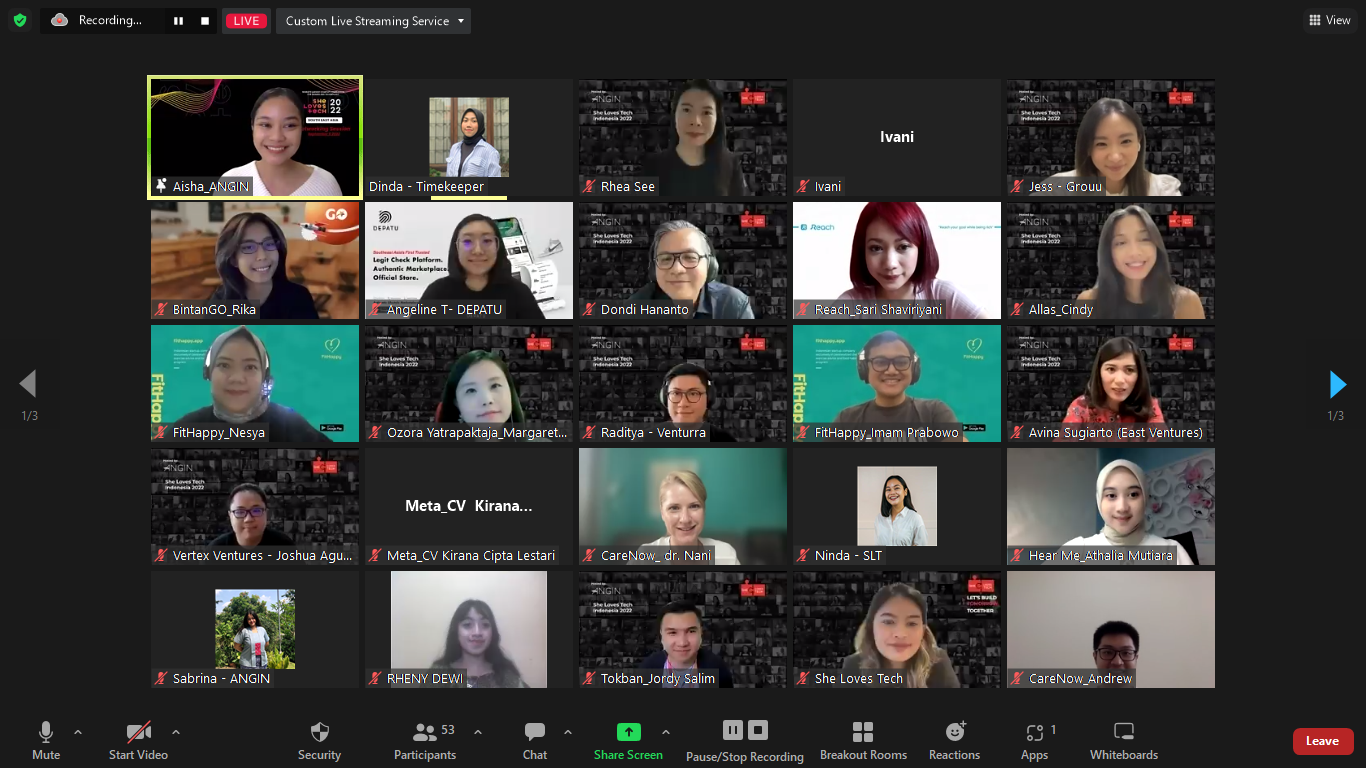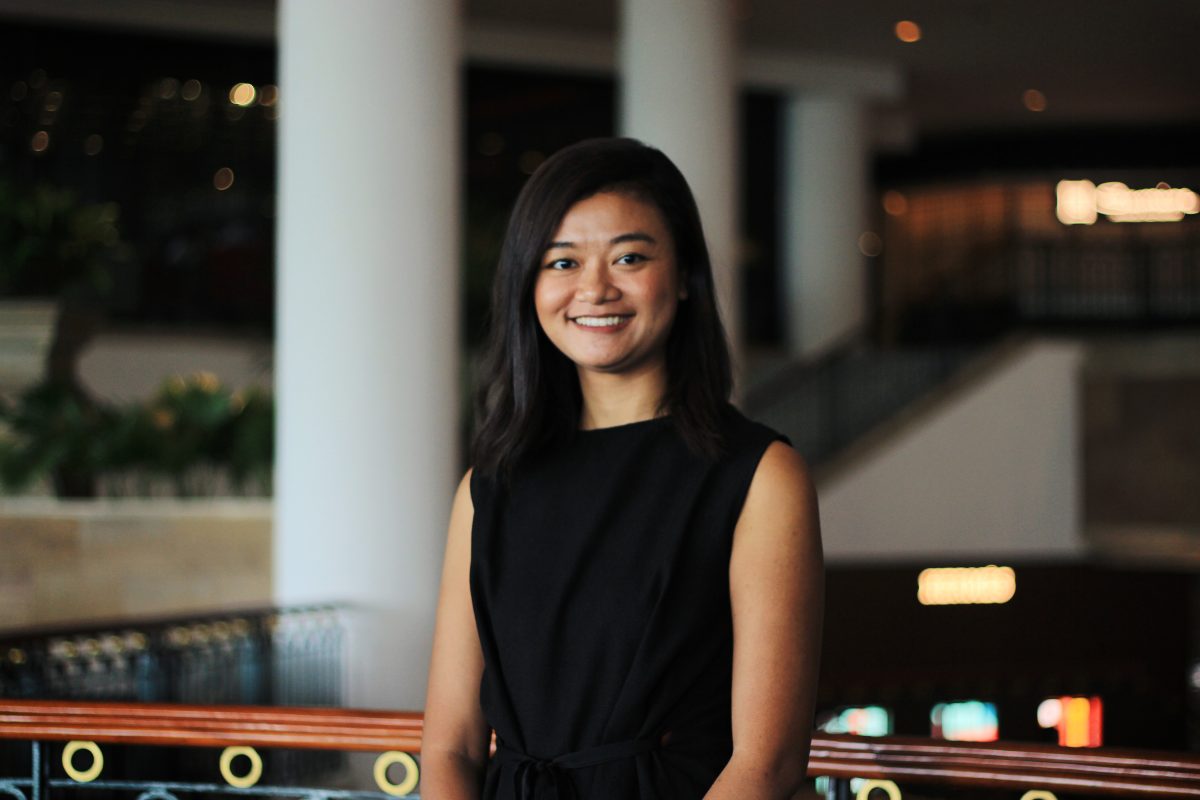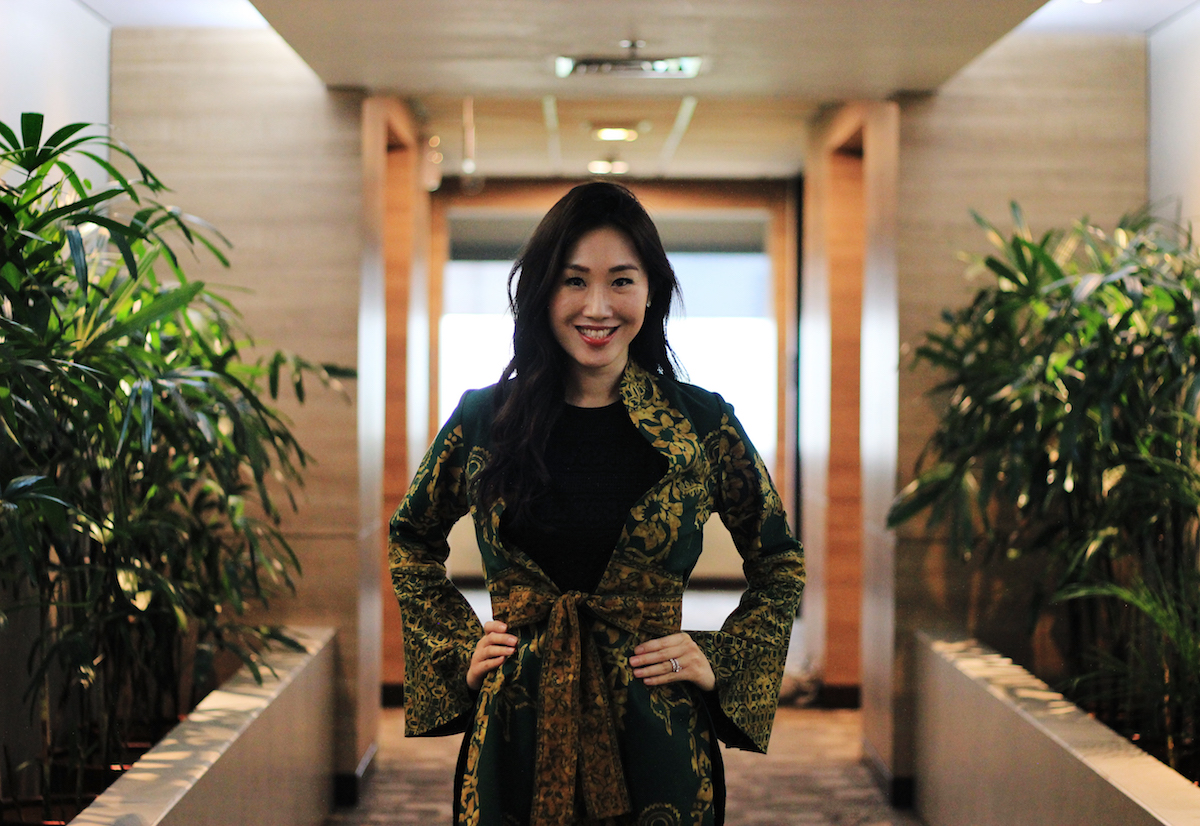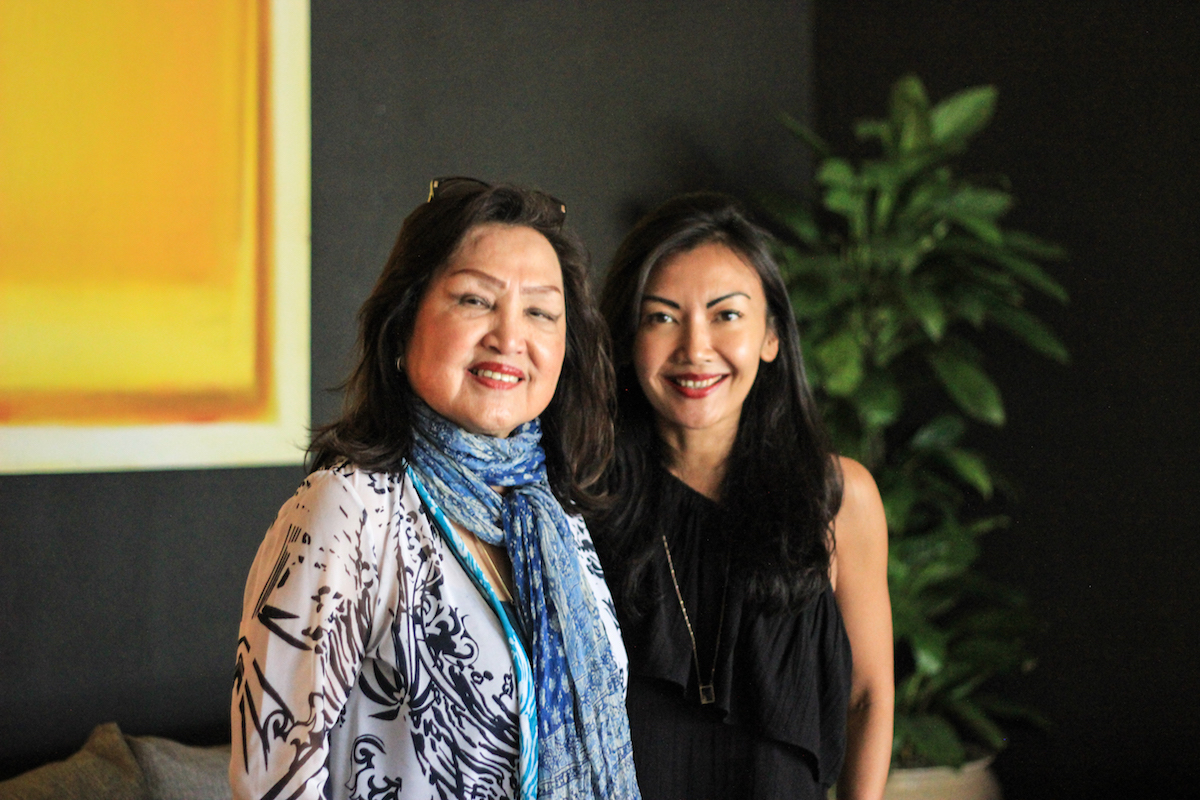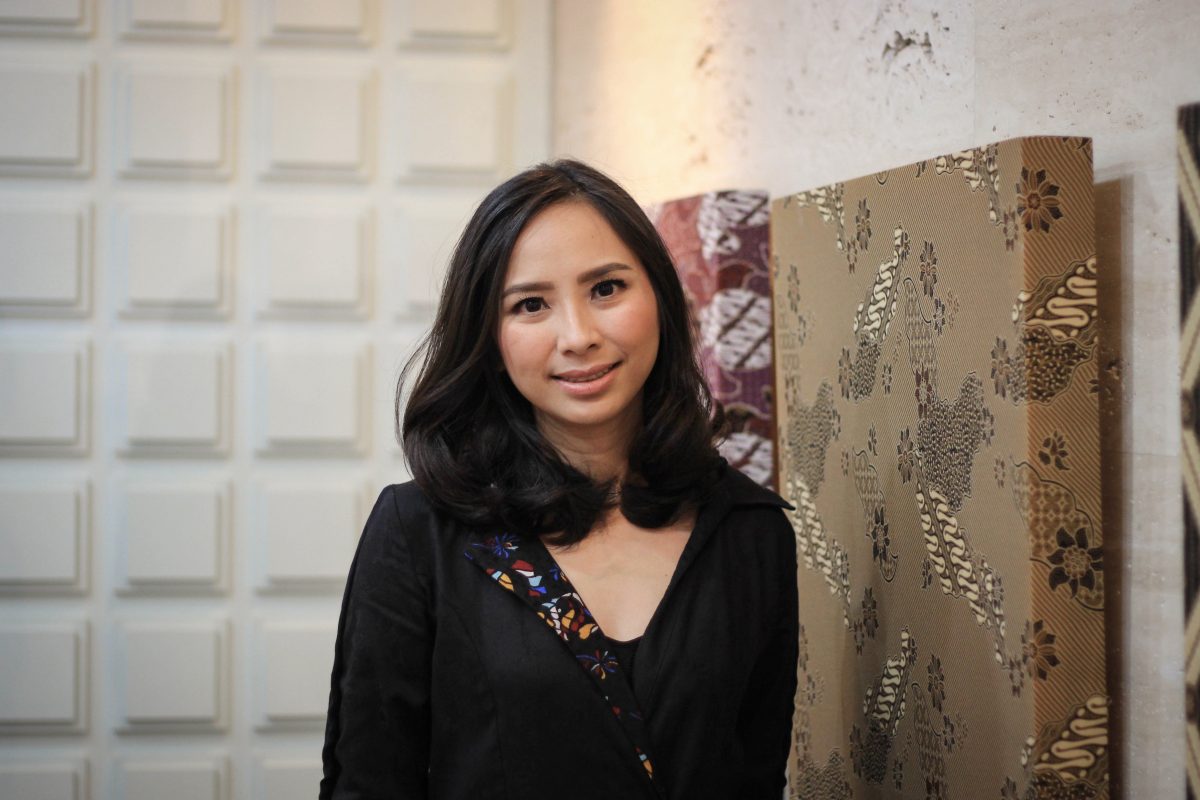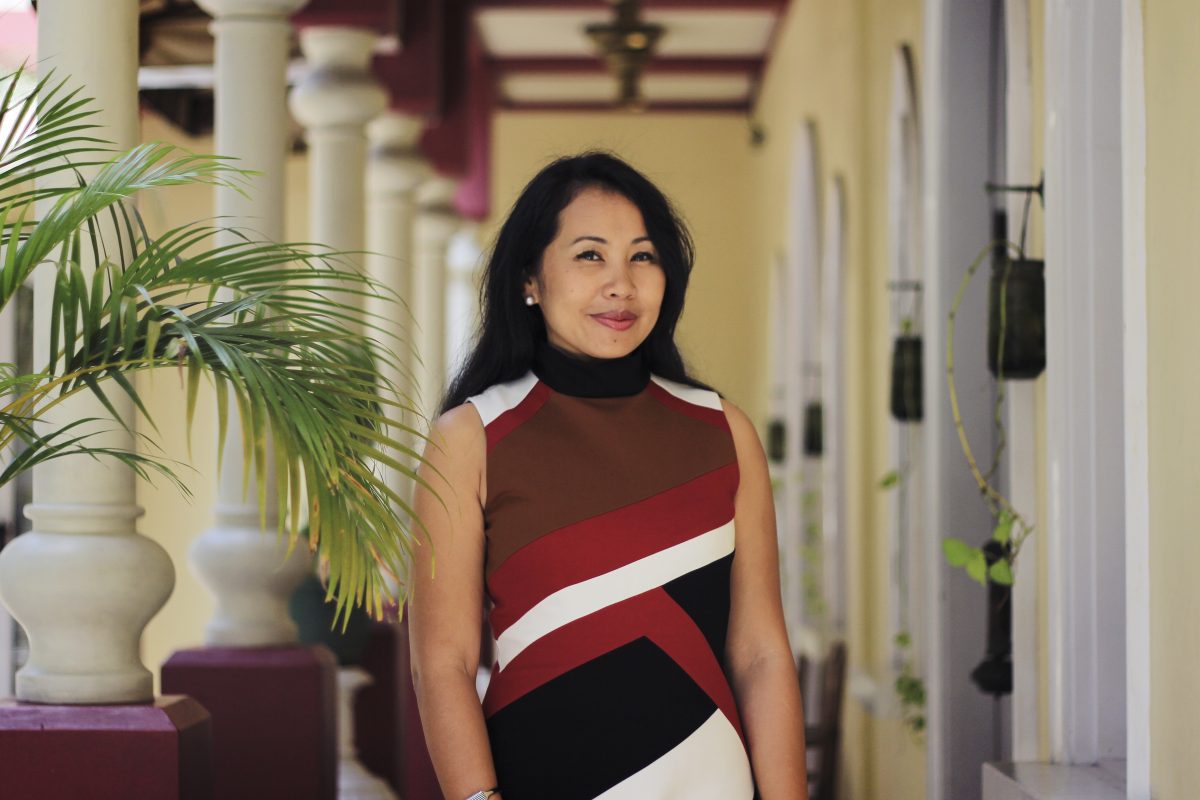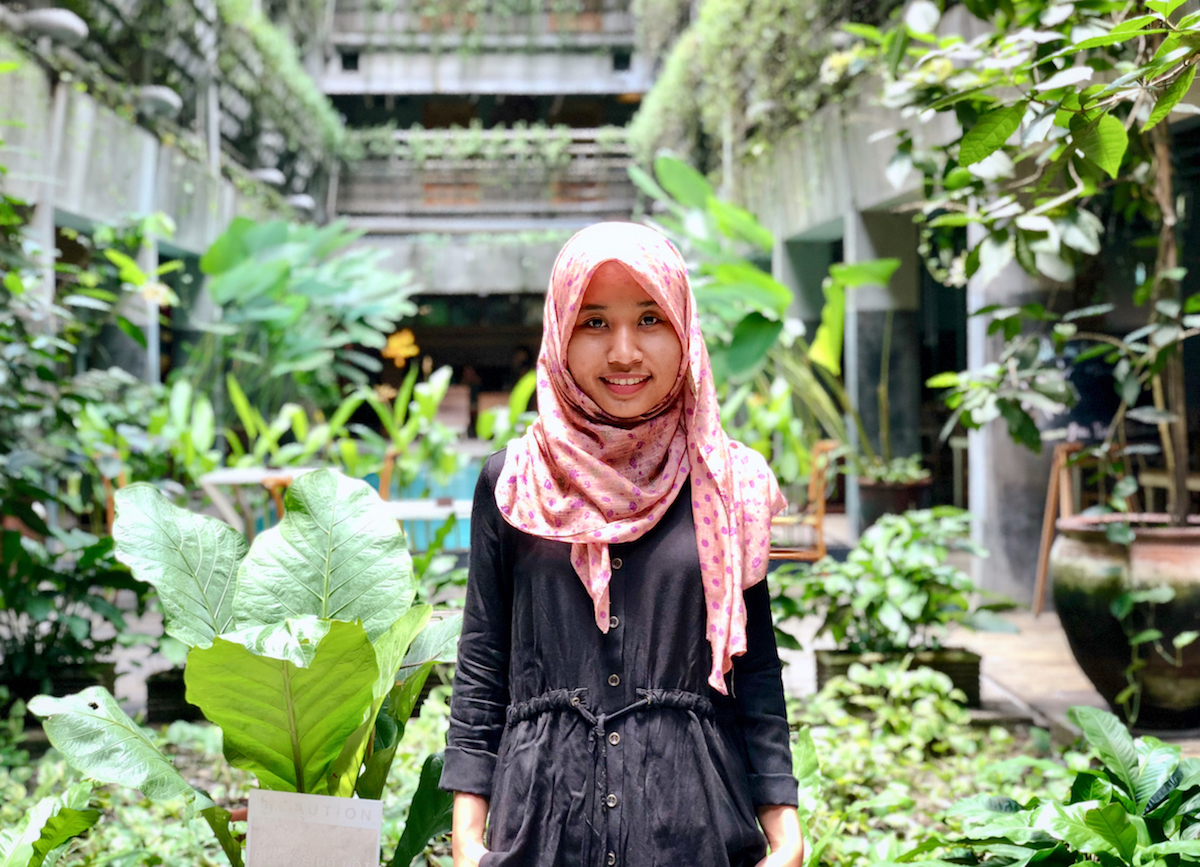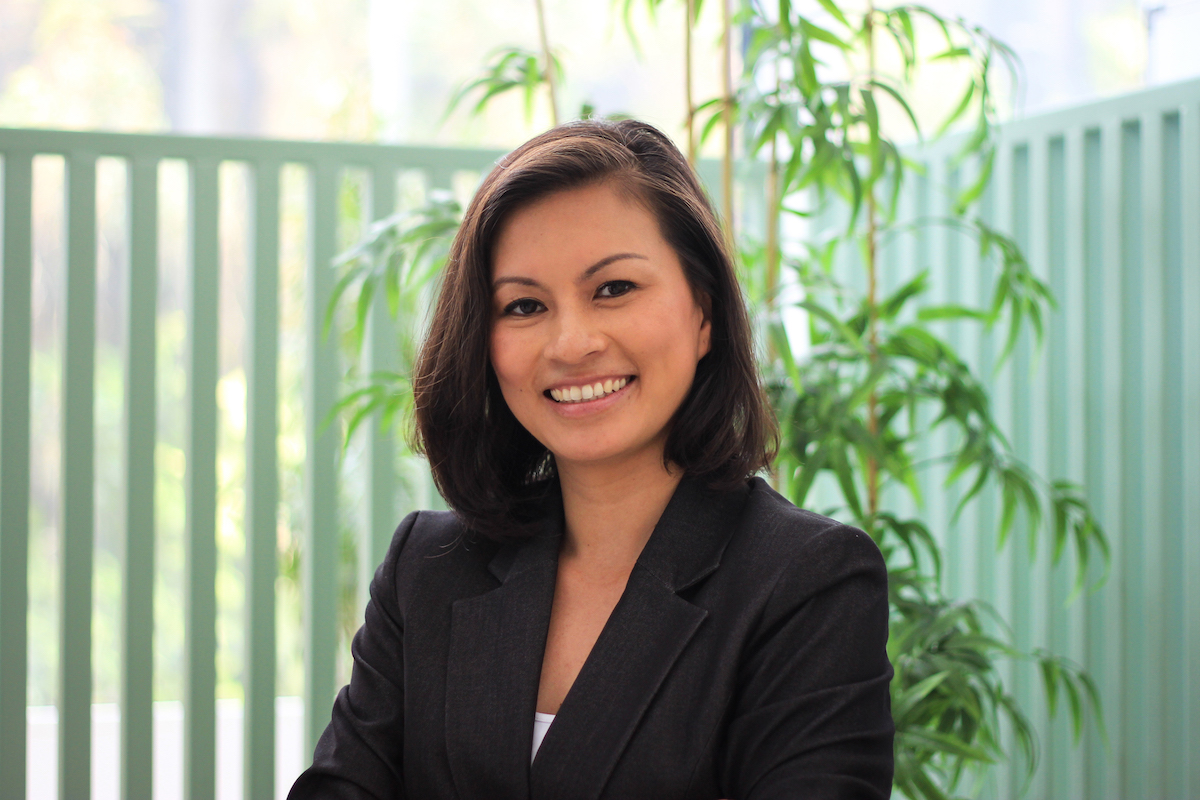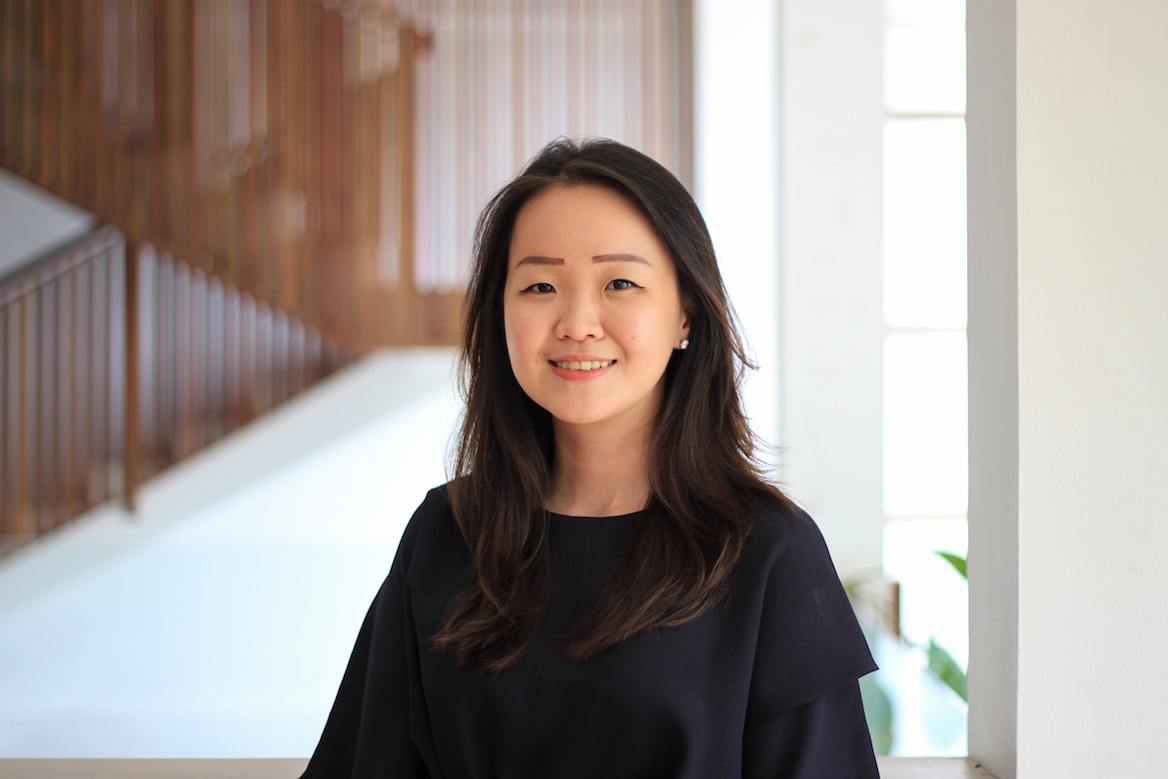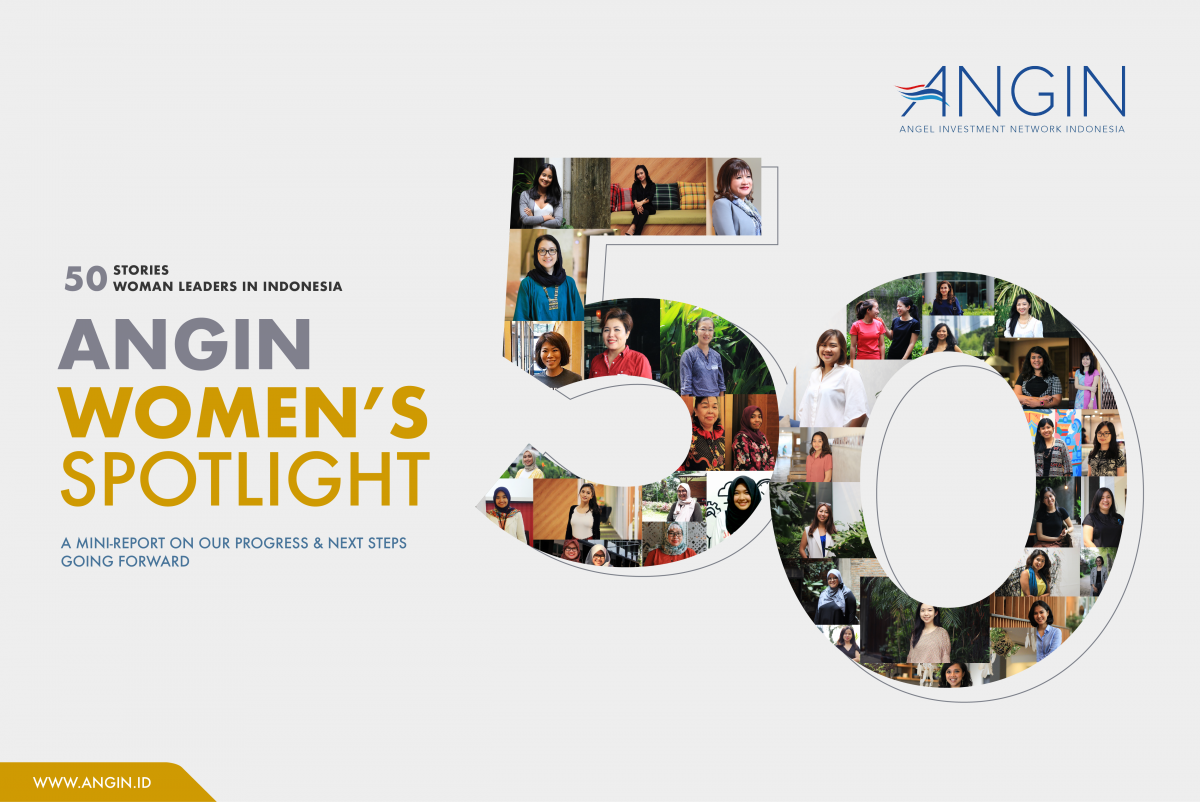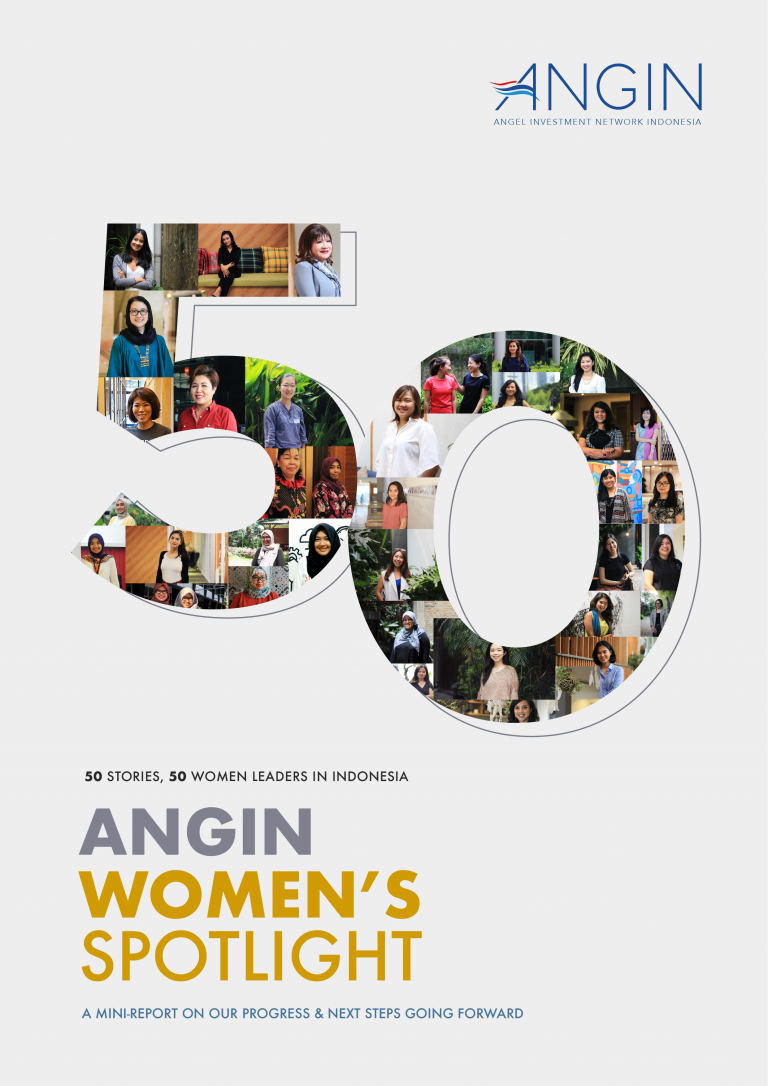Tell me a bit about yourself.
My name is Marianne Rumantir and I am currently the CEO of Member.id. Member.id helps businesses create great value for their customers by providing end-to-end loyalty solutions. Our mission is to change the loyalty landscape in Indonesia.
I come from a diverse background; I studied Communication and Advertising at university and ended up working in the corporate world, I was in corporate communications for several banks for about four years. Then I started a family.
As someone who is a career chaser it was very hard, especially because I was living overseas with no support system. So I started my own business back in 2009. My first business was a restaurant that I started with some of my friends in Melbourne. That restaurant actually still exists; it’s been there for the last 10 years. We expanded and opened up a few more branches, expanding to the US. This led me to move to Los Angeles, California.
While abroad, I would always get requests from others to buy them something and bring it back. You know, with Indonesians every time you hear someone is traveling overseas, you’re always asking, “Can you buy me something?” (laughs) That happened to me a lot. I’m actually not a big shopper, but I thought that I could actually make a business out of this. That’s how I started getting into technology. I established an e-commerce business where I would shop US products for Indonesians for a small fee. I had to use my credit card quite frequently because of this, so I ended up collecting a lot of points. From there, it kind of became my obsession, because I found out that I could actually use my points as a currency.
I’ve always had a passion for travel. At the time, I’d never been to Europe and I had no budget as a struggling business owner. And it wasn’t just for me — I had a family to consider as well. I did a lot of research and apparently there are a lot of people in the US that use points to travel everywhere; they can even upgrade to luxury cabins using points. I became obsessed in reading all these blogs, learning about how to travel hack.
When we finally flew to Europe, we basically spent nothing. We flew business class and we stayed in a luxury hotel for free. Combined, we had accumulated over 500,000 worth of points every year. Everytime we went on a holiday, it would be for free. I started sharing these points experiences online, creating a points-hacking blog targeting Indonesians.
Then, I started exploring about the Indonesian market and found out it was quite feasible. I was introduced to Edy, now an advisor at Member.id. Edy actually offered me a role at his other company. He said, “Why don’t you come back and work with us where you can bring some value?” I immediately told Edy yes to Member.id though, but I told him that we would need to change how people perceive loyalty programs in Indonesia. My initial idea wasn’t commercial. I wasn’t trying to make money. It was about how can we help Indonesians do the same thing that I could do back in the US.
I came back last year and then we took it from the ground up.
How is it like to be a pioneer in the loyalty space?
We are trying to take advantage of being the very few players who provide these services. This is why we cater to a very specific, niche market. At the moment, our clients are all mid-market to large enterprises, because a lot of them require some sort of customization. When you go to other smaller companies, they don’t really do any customization because there is one product for everyone, which is another product that we are developing at the moment.. For us, one selling point is that we can hit different kinds of verticals. That’s why we have clients ranging from hotels, retail, lifestyle, food and beverage. We’ve always believed that no one size fits all. After all, the way you create a loyalty program for hotel clients and F&B is completely different.
We’re very grateful that we’re one of the first ones. There will always be new companies in the industry, so it’s good to be the benchmark for others, right? It’s also been a blessing for us to be the first, because client acquisition becomes easier. We stopped looking for clients because we get so many from referrals. It’s a great testament of our services from existing clients that they would actually recommend their contacts to use us. I’ve never really thought of us as pioneers, but I want to take that as an advantage for our company to grow even faster and to hold the biggest market share.
What challenges have you faced as an entrepreneur?
When we first started, pricing was a huge challenge. Many were not familiar with our service, and didn’t understand why they should pay so much for a service that they had no idea about. Our response was to provide value to clients and prove to them that our pricing is worth every penny. That’s why we are quite big on the data team, because a lot of clients sit on a tremendous amounts of data that aren’t being used properly. That’s where we bring value. We can help you analyze all these transactions, create insights, craft targeted promotions, and ultimately increase sales.
As a woman leader, I’ve never really experienced anything too extreme. Most of the time I feel like women have achieved a place in the startup world, even though I know that looking at statistics women still make up a comparatively low number of startup founders. It’s very rare to find women entrepreneurs. But compared to the US, we’re doing better. I know for a fact there’s a big wage gap between men and women in the US. However, I remember working in an Indonesian company, and between myself and another male sharing the same position, we were paid the same. Here, it’s more of a position and level gap than a gender wage gap.
Back then, when people heard about startups and tech companies, there was this perception that you need to be an engineer, right? It was a man’s world, and if you didn’t know how to code, then forget about it. Whereas these days, startups are all about creating disruptive businesses – who can be the most innovative, who can achieve the best product-market fit, who are the founders. So expectations are different as well.
As a female founder, how can you create your own niche and get started?
So you can be a health freak for example. Maybe you want to change people’s behaviors and increase the amount of exercise people do. So it’s not just about coding and programming; it’s everything else. There are many female entrepreneurs in the travel industry and the beauty industry, for example. That’s what I like about the startup world. It’s open. You’re not just creating code or making mobile apps. It’s the whole package. But it’s also the perception and message that we need to create for all women out there to say that hey, the door is open. It’s open for everyone.
Are there any benefits to being a woman founder?
In a way, yes. Since statistically there are fewer women founders, you actually get noticed quicker. But that’s not what success boils down to. It really comes down to your leadership style. And I think women have a definite advantage when it comes to that. We have more empathy. It has its pros and cons of course, but I’d like to think that as a woman I can understand people’s situations better. For example, we have an employee who is also a mother. I would understand if she needs to take time off because she has to look after her family. I also understand that even men who have kids who want to go home early should be able to as well, because they need to spend time with their kids. I always strive to make sure that our company culture is healthy, that our employees know that, look, you are supposed to work hard, but that doesn’t mean that you neglect your other obligations.
How do you balance your time as a founder, a mother, and a family member?
The key is: it takes a village. So I do have a good support system. If I were doing this overseas, I wouldn’t be able to achieve what I’ve achieved right now. In comparison to what I’ve achieved over the past one year here, I’d probably only be able to achieve it in three years overseas. Living overseas, I didn’t have a support system. I have no family overseas, and hired help would be too expensive. Whereas here, the support system is very strong so I get to go to work without having to worry about picking up my kid at the daycare or something. That’s one element.
Second, the most important thing to survive is to make sure I myself am happy. I know that a lot of mothers always put their family’s needs above they ended up neglecting themselves. I’m not saying that’s wrong, but we’re also in charge of our own happiness, right? If we know how to make ourselves happy and content then our families will also feel that positivity. I still socialize and work, but I have my own time at night and on weekends with the family. And of course the weekend is for catching up on sleep. I guess it’s all about quality. It’s not quantity. Making sure everybody gets enough time. As a result, the aura I bring in at home and at work and everywhere, it’s always positive. Then again it takes a village. I can’t do this alone.
What did you learn from failure?
My background has always been working in a corporate world, right? And so I had always been an employee. Growing up, I never thought I would ever run my own business because my parents are all professionals. I mean, I don’t have a trust fund. So I was taught that as an professional, you have to climb the corporate ladder to progress in your career.
I’m actually the only person in my family who is pursuing entrepreneurship full-time. I’m kind of a rebel. I am the risk-taker. Thankfully my husband has the steady job, so even if I failed, at least we could still eat. Honestly, the first six months to a year — that was a big struggle. I almost quit my first business because I wasn’t getting paid monthly, and it was definitely less than the amount that I used to get from my corporate salary.
It was a big struggle for me, but the thing that made it sustain is because I have a good business partner, my business partner came from a background of entrepreneurs. So he was the one who motivated me and told me I needed to be patient and persistent and to just do our best. So he was the one who believed in our venture, and that’s why we continued to expand. Not all of the expansion was a success. But that didn’t mean that we had to stop.
And I’ve learned that in order to succeed, you can’t do it by yourself. You need a team and you need a business partner because otherwise I don’t think you can handle all the hard stuff on your own. When you face issues or problems, sometimes you can’t think of the solutions all by yourself.
I may not be the person with the most brilliant ideas in the company, that’s why we like to hire a lot of smarter people. My job is to be able to facilitate all these people so that their ideas can come to life. That’s what a leader should do. When you manage something, it doesn’t mean that you have all these great ideas all the time. What you need to do is to facilitate others. Again, the failures that I’ve experienced were largely because I did not have the right team. That was my lesson.
What are the ingredients for the right team? For the right business partner?
You need to find someone who complements you. Don’t find someone who is exactly the same. At the moment, our senior management team all have completely different specialties. I’m more on the external side, like marketing and business development. Robert is more the data/insights person and he’s very good at strategy. All three of us have completely different specialties, so we would complete each other, right? Every time we are facing issues, we can work together to think about what’s next. It’s a good combination when we put our heads together.
Do you have any role models?
I always say that my mother is my idol. She has been a professional all her life, but I feel like I was never neglected by her despite of how busy she’s always been. I have always seen her as someone who knows how to balance things. She knows her priorities. In terms of leadership, I like to see different types of people leadership. I like to follow Arianna Huffington and Sheryl Sandberg for womens’ rights heroes. I like to combine lessons from all of these women and decide what would best apply to me. I don’t think one person’s leadership management is something that I can exactly copy. So I just try and follow different types of leaders to see what would fit my style.
How would you describe yourself as a leader?
I’m a very open person. That’s why we don’t have doors in our offices. I want people to be able to talk to me anytime. Whatever position you have, whatever department, whatever your specialty — if you feel like you have something that you know bothers you, if you’re not happy then you can come talk to me. I want to maintain that open culture. Second, I want to make sure my employees are happy. This is why I like having a lean company, because I know each one of my employees personally. I want to know what makes them tick, what makes them happy, and how I can help them grow professionally. I don’t micromanage, but I know exactly what everyone’s doing. That’s why we have alignment meetings regularly, because I want to know what people are doing without stepping on their toes too much.
Are you the only girl in the family?
I’m the only one — I have two brothers. Maybe it was because I was raised by a working mother, I was never expected to become a stay-at-home mom. I’ve always wanted to work. Like I said, I’m probably the only rebel in the family who took a big risk with her career through entrepreneurship. I see it as a way to set a good example, at least for my nieces, you know, and for the other extended family. I want them to know you can actually make it as a working mother as long as you know your priorities.
Do you have any advice for other girls who want to start their own businesses?
Looking back at my experiences, the fact that I didn’t start my own business straight out of school was a good lesson for me. Because through my professional experiences, I’ve learned how to become part of an organization first, to kind of build my career up from the very bottom. So I know how it feels like, being at the lowest level first, and then how it feels like to collaborate with other people and how to have a boss. Having mentorship is also important because I know these days a lot of younger people start their own businesses straight out of school, so they lack mentors. I mean, it’s not a wrong way to approach entrepreneurship. It’s just that for me, I had a better learning foundation. Either way is fine, but for me, it’s better to gain experiences not as an owner but as an employee, so that you know how to treat your team.
